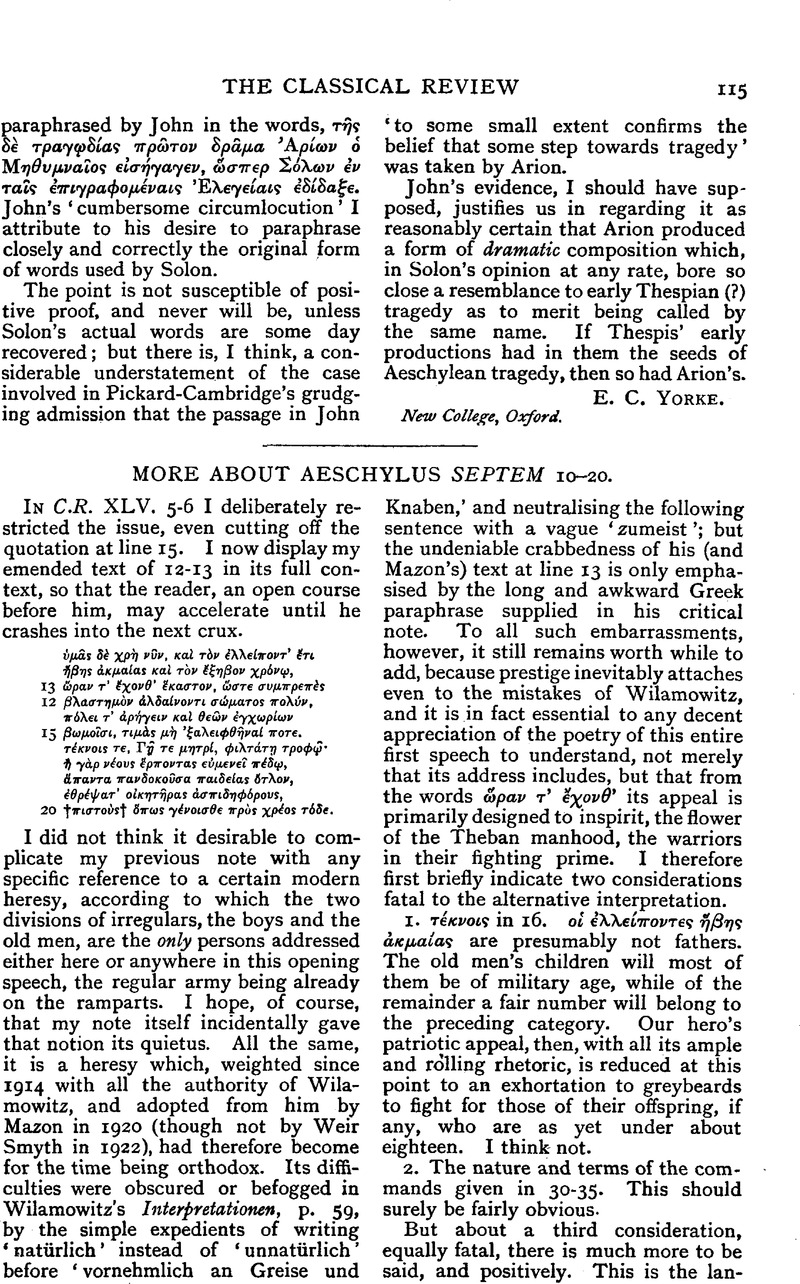No CrossRef data available.
Published online by Cambridge University Press: 27 October 2009

page 116 note 1 As already suggested by Tucker; but his long note on 17 suffers (rather characteristically) from too many incompatible ingenuities; his translation (q.v.) is its own reductio ad absurdum.
page 116 note 2 The homely forceful realism of such an image might well seem authentic Aeschylus; but observe also the association here of the three ideas, (1) the trouble children are to rear, παιδεας τλον, (2) a Nurse who (3) exercises two professions at once, is πανδοκες as well as τροφες. Everyone will then immediately remember that other Nurse, Cho. 752 πολλ … τλσῃ, 760 ![]() , 761 διπλς χειρωναξας. I further suggest that Plato so understood and therefore so construed our passage. Laws XI. 918E is, I think, the only other place in Greek where πανδοκεσαι appears in one sentence with μτηρ and τροφς. There Plato says that if (among other things) the vocation of inn-keeping were pursued by the best people, women as well as men, we should see it honoured
, 761 διπλς χειρωναξας. I further suggest that Plato so understood and therefore so construed our passage. Laws XI. 918E is, I think, the only other place in Greek where πανδοκεσαι appears in one sentence with μτηρ and τροφς. There Plato says that if (among other things) the vocation of inn-keeping were pursued by the best people, women as well as men, we should see it honoured ![]() . It must be remembered that Plato not only (like most good Athenians) knew his Septem well (Rep. II. 362A), but knew particularly (like Euripides) this prologue: Euthydemus 291D; cf. also Rep. III. 414E
. It must be remembered that Plato not only (like most good Athenians) knew his Septem well (Rep. II. 362A), but knew particularly (like Euripides) this prologue: Euthydemus 291D; cf. also Rep. III. 414E ![]() .
.
page 117 note 1 Cf. the imitation Eur. Hclid. 826–7, where the χρεών corresponds to my συμπρεπς here.